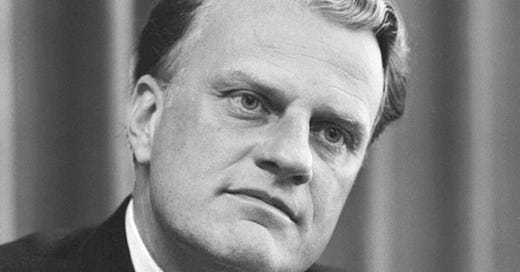Mistakes aren’t always the end.
Mistakes aren’t always the end. Sometimes, they’re just the beginning of wisdom.
I’ve always found it remarkable how one misstep, early on, can shape the rest of a life—or a legacy.
Take Billy Graham’s first encounter with power. In July 1950, he was still a young, rising evangelist when he got the opportunity to meet President Harry S. Truman. It should have been the beginning of something meaningful. Instead, it became a cautionary tale.
Graham arrived at the White House with three associates, filled with zeal and perhaps a touch too much youthful enthusiasm. He spoke to Truman about the war in Korea, shared his spiritual convictions, and even prayed with the President. So far, so good.
But what followed ruined any hope of a real relationship.
Naive about White House protocol and the invisible lines one shouldn’t cross, Graham and his team walked straight out to the press corps and started talking freely. They shared details from their private conversation with the President. Then, to make things worse, a photographer asked them to reenact their prayer on the White House lawn, and they did. Kneeling there in front of the cameras, it made headlines—but not the kind you want.
Truman was livid. He saw it as a cheap publicity stunt, not a sincere spiritual moment. A man deeply private about faith and suspicious of religious grandstanding, he was offended. From that day on, Truman kept his distance. Years later, he would even say, “Billy Graham is one of those counterfeits. Claims he’s a friend of all Presidents—but he was never a friend of mine.”
For Graham, it was a brutal but necessary lesson. He would later call the episode “an embarrassing experience,” admitting that he had "abused the privilege." When he finally visited Truman after he’d left office, Graham apologized, owning the mistake. Truman, to his credit, forgave him, saying, “Don’t worry about it. I realized you hadn’t been properly briefed.”
That moment reshaped Billy Graham. He never again treated access to power carelessly. Instead, he committed himself to being a quiet, trusted presence—someone presidents could speak to in confidence, without fear of seeing their words in headlines.
And over time, that approach paid off.
From Eisenhower to Trump, Graham became the spiritual confidant of nearly every president who followed. Not because he chased power—but because he learned, the hard way, how to steward influence with humility.
Mistakes aren’t always the end. Sometimes, they’re just the beginning of wisdom.




